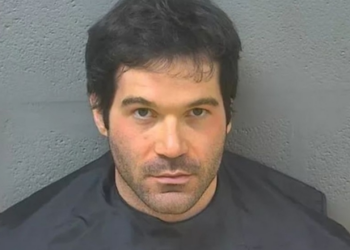
In a bombshell legal development, Indian billionaire Gautam Adani and seven other business executives have been indicted by United States prosecutors for an alleged elaborate $250 million bribery scheme designed to secure lucrative solar energy contracts through systematic corruption.
Unprecedented allegations of international corruption
The US Department of Justice (DoJ) has leveled serious charges against Adani and his associates, accusing them of orchestrating a complex network of bribes targeting Indian government officials to win solar energy projects projected to generate over $2 billion in after-tax profits over two decades.
United States Attorney Breon Peace delivered a scathing statement: “As alleged, the defendants orchestrated an elaborate scheme to bribe Indian government officials to secure contracts worth billions of dollars, and Gautam S. Adani, Sagar R. Adani, and Vneet S. Jaain lied about the bribery scheme as they sought to raise capital from U.S. and international investors.”
Expansive indictment reveals systematic misconduct
The five-count indictment implicates multiple high-ranking executives, including Gautam Adani’s nephews Sagar R. Adani and Vneet S. Jaain, who are both executives in the group’s renewable energy businesses. The charges extend to former executives of a renewable-energy company and employees of a Canadian institutional investor.
Deputy Assistant Attorney General Lisa Miller emphasized the severity of the accusations: “This indictment alleges schemes to pay over $250 million in bribes to Indian government officials, to lie to investors and banks to raise billions of dollars, and to obstruct justice.”
A pattern of alleged deception
Prosecutors claim that Adani and his associates systematically misled investors and banks while attempting to conceal their bribery conspiracy. The FBI Assistant Director in Charge, James E. Dennehy, described the alleged actions in stark terms: “Gautam Adani and seven other business executives allegedly bribed the Indian government to finance lucrative contracts designed to benefit their businesses.. while still other defendants allegedly attempted to conceal the bribery conspiracy by obstructing the government’s investigation.”
In a remarkable detail, prosecutors revealed that one of Adani’s accomplices meticulously documented bribery payments directly on their phone.
Context of previous controversies
These charges are not occurring in isolation. They follow earlier accusations of fraud by Hindenburg Research, which in 2023 alleged that Adani’s conglomerate engaged in a “brazen stock manipulation and accounting fraud scheme over decades.”
The controversy is further complicated by Adani’s reputation as a close ally of Indian Prime Minister Narendra Modi. Hindenburg’s report suggested a pattern of “government leniency towards the group” that had historically discouraged scrutiny.
Current legal status
At present, neither Adani nor the other defendants are in custody. The legal proceedings promise to be complex and far-reaching, potentially sending shockwaves through international business and government circles.
Broader implications
The indictment represents a significant moment in international corporate governance, highlighting the increasing willingness of US authorities to pursue cross-border corruption cases and the growing global intolerance for systematic bribery.
As the case unfolds, it will undoubtedly draw intense scrutiny from legal experts, investors, and international observers, potentially reshaping perceptions of corporate ethics in emerging markets.
The Adani Group has yet to provide a comprehensive public response to these serious allegations.





